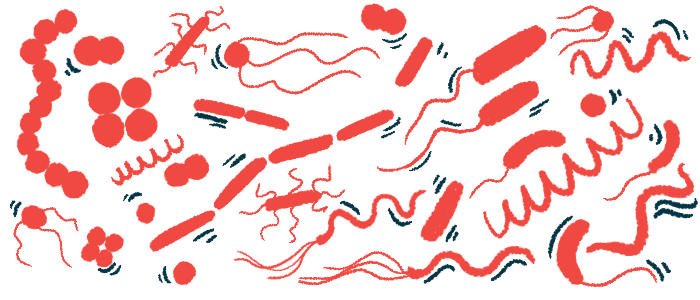Trikafta lowers rates of bacterial colonization for center’s CF patients
Patients reduced their use of mucus-clearing medicines, antibiotics in US study

Treatment with Trikafta (elexacaftor/tezacaftor/ivacaftor) significantly reduced rates of colonization with the bacterium Pseudomonas aeruginosa in adults with cystic fibrosis (CF) at a center in Kentucky.
Trikafta also reduced the need for mucus-clearing medicines and antibiotics, according to the study “Impact of Elexacaftor/tezacaftor/ivacaftor on Respiratory Colonization in an Adult Cystic Fibrosis Clinic,” which was published in The American Journal of the Medical Sciences.
CF is caused by mutations in the gene that provides instructions to make the protein CFTR. Disrupted or no CFTR activity leads to the production of abnormally thick, sticky mucus, which drives most disease symptoms.
Thick mucus in the lungs serves as a fertile breeding ground for bacteria, and lung infections are a common problem for people with CF. The bacterium Pseudomonas aeruginosa is a common cause of chronic lung infections for CF patients.
Trikafta contains a combination of three CFTR modulators, which are medications that can boost the functionality of the defective protein in people with specific CF-causing mutations. In clinical trials, the therapy has been proven effective at improving lung function for CF patients with eligible mutations.
Researchers review data from 82 adults with CF who started Trikafta
There hasn’t been much research into how Trikafta treatment impacts bacteria in the lungs, leading scientists at the University of Louisville to conduct a review of data from 82 adults with CF who started on Trikafta while receiving care at their center.
In the two years before starting Trikafta, 62% of evaluable patients had P. aeruginosa colonization, meaning they tested positive for the bacterium in the lung at least twice within a 12-month period. By contrast, during the two years after starting on Trikafta, 31.6% had P. aeruginosa colonization, which means 24 patients initially shown to be colonized by the bacterium were decolonized after starting Trikafta.
In particular, the findings further showed a significant decrease in the percentage of patients with multi-drug resistant P. aeruginosa from pre- to post-Trikafta treatment (30.5% vs. 11%).
Rates of pulmonary exacerbations (sudden worsening of respiratory problems usually due to an infection) were nearly five times higher in the two years before Trikafta than in the two years after starting treatment.
[Trikafta] may lead to decreased need for additional respiratory medications and lower patient medication burden.
After starting Trikafta, patients reported less need for mucus-clearing therapies and inhaled antibiotics, which the researchers said is probably related to the reduced rate of bacterial colonization.
Overall, Trikafta treatment “resulted in reduced colonization with P. aeruginosa, improvement in lung function, and decreased frequency of exacerbation,” the researchers concluded, adding the triple-modulator therapy “may lead to decreased need for additional respiratory medications and lower patient medication burden.”
The researchers noted the study was limited to patients at one center, so more work will be needed to verify the results. They also highlighted a need for longer follow-ups to see if patients who were free of P. aeruginosa colonization in the first years after Trikafta would stay that way in the years and decades to come.








